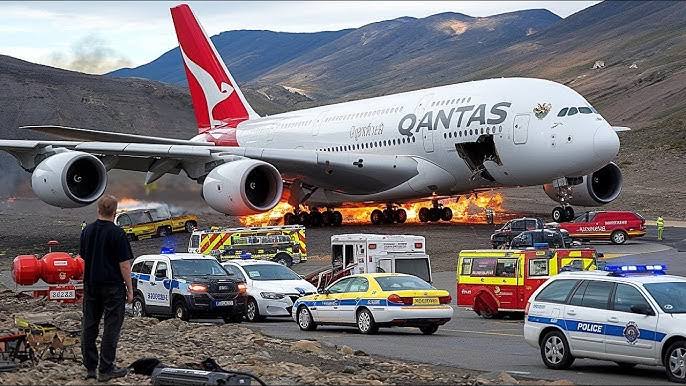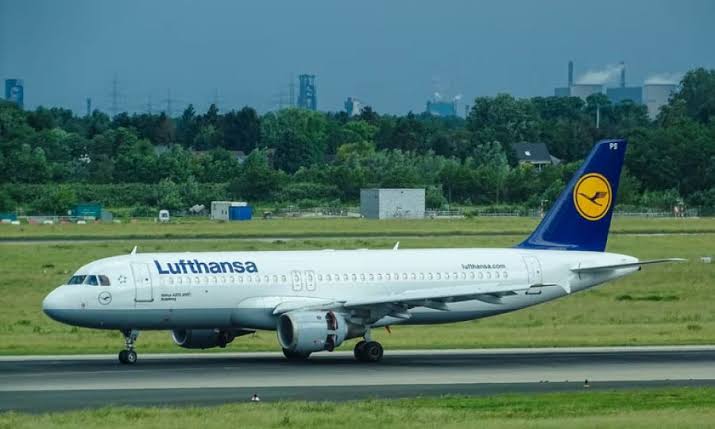WestJet’s New CEO Shocks Passengers with Fee Hike Announcement
WestJet’s New CEO Shocks Passengers with Fee Hike Announcement
Introduction: A Controversial Move
WestJet Airlines, one of Canada’s leading carriers, has long been known for its customer-friendly approach and competitive pricing.
However, the airline’s newly appointed CEO has made a bold and controversial declaration—an increase in fees that is set to impact millions of passengers.

This decision has sent shockwaves across the aviation industry, sparking debates among travelers, analysts, and airline competitors alike.
With airline costs rising due to inflation, fuel prices, and operational challenges, WestJet’s move to hike fees may have been inevitable.
Yet, the way it was announced—abruptly and without clear justification—has left many customers outraged. The question remains: is this a necessary business decision or a strategy that could drive loyal passengers away?
The Announcement: What We Know So Far
During a recent press conference, the new CEO of WestJet, whose appointment was met with high expectations, made an unexpected statement regarding fee increases.
The airline will be adjusting its pricing structure to account for rising operational costs, which will directly impact ticket prices, baggage fees, and other service charges.
While the exact percentage of the increase varies across different services, early reports suggest that:
Checked baggage fees will rise by 15-20%, depending on the route.
Change and cancellation fees will increase significantly, making flexibility more costly for travelers.
Seat selection and priority boarding costs will be higher than ever before.
Additional surcharges may be introduced for in-flight services, including meals and Wi-Fi.
This announcement has been met with widespread criticism, with many questioning whether this aligns with WestJet’s long-standing reputation as a budget-friendly airline.
Why Is WestJet Increasing Fees?
The aviation industry has been facing unprecedented financial pressure over the past few years. Several factors have contributed to rising costs, including:
1. Inflation and Economic Instability
The global economy has been struggling with inflation, increasing the cost of goods and services. For airlines, this means higher expenses for fuel, maintenance, and employee wages.
2. Soaring Fuel Prices
Fuel is one of the biggest costs for any airline. With recent spikes in oil prices, WestJet has found itself spending significantly more on keeping its planes in the air.
3. Post-Pandemic Recovery Challenges
While travel demand has surged since the COVID-19 pandemic, airlines have struggled with labor shortages, supply chain disruptions, and rising airport fees.
4. Expansion and Fleet Upgrades
WestJet has been working on expanding its routes and upgrading its fleet, which requires significant investment. The airline may be using the fee increase as a way to offset these costs.
Passenger Reactions: Frustration and Backlash
Unsurprisingly, the announcement has triggered an outpouring of frustration among passengers, particularly those who have been loyal to WestJet for years. Many took to social media to voice their discontent, with some calling the decision “a betrayal of budget travelers” and others vowing to switch to competing airlines.
On Twitter, one user wrote:
“WestJet used to be my go-to airline because of fair prices. Now, they’re just another airline squeezing every dollar from passengers!”
Another commented:
“Raising fees without improving service? No thanks, I’ll take my business elsewhere.”
Frequent flyers and business travelers, who rely on WestJet for affordable and convenient travel, are particularly concerned about the increased fees for changes and cancellations.
Many argue that in a post-pandemic world, flexibility is more important than ever, and making it more expensive to adjust flights is a step in the wrong direction.
Industry Experts Weigh In
While the fee hikes have angered passengers, some industry analysts believe the move was inevitable.
Aviation analyst Mark Davidson explains:
“WestJet, like many airlines, is facing a tough financial reality.
The cost of running an airline has gone up dramatically, and without adjusting their pricing, they risk significant losses. However, how they communicate and implement these changes will determine how much damage this does to their brand.”
Another expert, Sarah Langley, points out:
“The airline industry has become increasingly competitive, with budget airlines offering low-cost alternatives. If WestJet isn’t careful, they could lose a chunk of their market share to competitors who keep fees lower.”
Will This Affect WestJet’s Future?
WestJet has built its brand on affordability and customer service. If passengers feel that the airline is no longer offering value for money, it could lead to a decline in bookings and customer loyalty.
Competitors such as Air Canada, Flair Airlines, and Porter Airlines may capitalize on the situation by offering special deals and incentives to lure frustrated WestJet passengers.
Moreover, the timing of the announcement has raised eyebrows. With summer travel season approaching, many customers are in the process of booking flights. A fee hike at this time could push travelers to reconsider their options.
Are More Fee Hikes Coming?
One major concern is whether this is just the beginning. Some experts warn that airlines often introduce small fee increases before rolling out even bigger changes down the line.
If this trend continues, WestJet could become significantly more expensive than its budget-friendly image suggests.
Passengers are also watching closely to see if the airline will improve services to justify the higher costs. If not, the backlash could intensify.
Possible Solutions: What Can WestJet Do?
To maintain customer trust while still managing costs, WestJet may need to consider alternative strategies, such as:
1. Introducing Tiered Pricing Models – Offering more flexible pricing options so travelers can choose services based on their budget.
2. Improving Transparency – Clearly explaining why fees are increasing and showing how the additional revenue will enhance the passenger experience.
3. Providing Loyalty Incentives – Offering perks for frequent flyers to balance out the impact of the fee hikes.
4. Investing in Customer Service – Ensuring that passengers receive top-tier service to justify the extra costs.
Conclusion: What Lies Ahead for WestJet?
The decision to increase fees is a risky move for WestJet’s new CEO. While it may help balance the airline’s finances, the backlash from customers could damage its reputation and lead to a loss of market share.
As travelers react and industry experts analyze the situation, one thing is clear: WestJet must handle this carefully.
If they fail to address customer concerns or continue raising fees without improving services, they could face long-term consequences.
For now, passengers have a choice—accept the new fees, find alternative airlines, or voice their concerns in hopes that WestJet reconsiders its approach. The next few months will be critical in determining whether this fee hike is a short-term necessity or the beginning of a major shift in West






